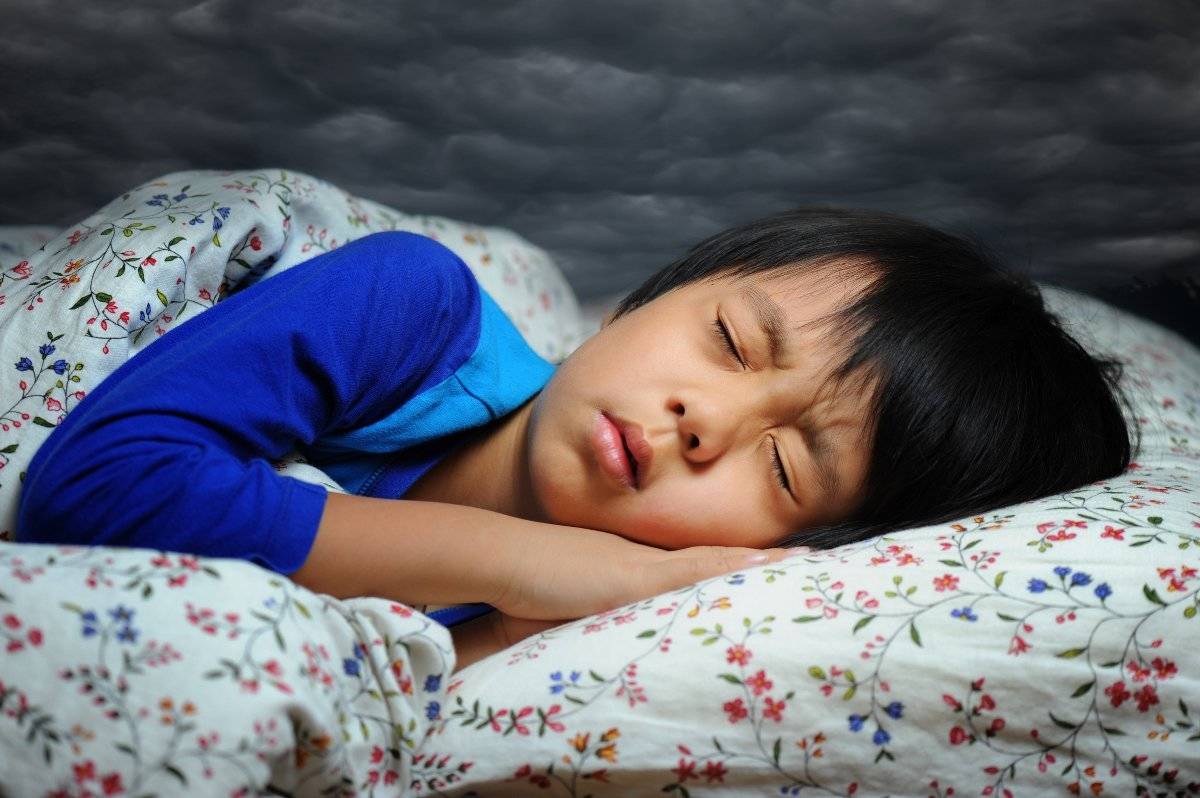Contents:
- Medical Video: 12 Things to Know If You Like Sleeping Naked
- Why do children have trouble sleeping?
- 1. Children are afraid to sleep apart from their parents
- 2. A nightmare
- 3. Wrong sleep time
- 4. Problems with circadian sleep rhythms
- 5. Television and other electronic devices
- 6. Stress and anxiety
- 7. Wrong nap time
- What should be done so that the child sleeps on time?
Medical Video: 12 Things to Know If You Like Sleeping Naked
Sleep is a child's basic need. When sleeping, the child collects energy again, even growth can occur while sleeping in childhood. However, sometimes the child is difficult to be invited to sleep. Sometimes children feel sleep is a boring activity for him.
Why do children have trouble sleeping?
Many reasons that make children difficult to sleep. The following might be one reason:
1. Children are afraid to sleep apart from their parents
Often, young children experience anxiety when they sleep separately from their parents, so sleep time is a scary thing for him. Small children are usually afraid to sleep in the dark and sleep alone, so he will be afraid when entering bedtime. If the child is afraid, that means he needs your help as a parent. Maturity of the brain and cognitive abilities of young children are still not able to handle emotional stress well. Maybe you think the child who sleeps separately from you is part of the sleep training for him, but there is no evidence to show that sleeping apart from parents will make a child's fear of sleep will decrease. In fact, research shows that fear of children going to sleep can cause children to have nightmares and emotional problems.
You can accompany your child to fall asleep, or decorate his bedroom with photos or toys that children love so that children are happy. Also adjust the temperature of the child's room so that the child is not cold or overheated. Make the child's bedroom as comfortable as possible for the child. As children get older, fear of children going to bed over time will disappear.
2. A nightmare
Children who have had nightmares will usually be afraid to sleep. This nightmare is usually caused because before bedtime children watch scary movies or read scary story books. We recommend that you recommend a film or story book that is not scary for children. Encourage children to think about pleasant things before going to sleep, such as the place of their dreams or activities they really want to do, or other things.
3. Wrong sleep time
Many parents have told their children to sleep at too fast a time for their children, before their bodies are ready to sleep. The body does not produce enough of the hormone melatonin to make it fall asleep. Children who go up to bed too fast, will make them feel bored and this can trigger children to think about things that scared him.
4. Problems with circadian sleep rhythms
Each individual has their own circadian rhythms. This circadian rhythm can regulate when a child's body needs sleep and when to wake up. If the child is having difficulty getting sleep at night or it is difficult to stay awake during the day, maybe your child has a problem with his circadian rhythm.
To overcome this problem, you may be able to readjust the child's biological clock with the environment gradually. You can take the child out of the house during the day so that the child is exposed to the sun. Then when it enters the night and time to sleep, you can turn off the child's room lights or other electronics that emit blue light. Because lights and electronic goods, such as televisions, can reduce the production of melatonin (a hormone that makes children sleep), so that children will be more difficult to sleep in bright room conditions.
5. Television and other electronic devices
Research in America shows that watching television too much, both day and night, is associated with higher sleep problems, such as anxiety, delayed sleep, and children refusing to sleep. Other studies also show that children who watch television shows for adults, such as the afternoon news program, can reduce the duration of sleep and increase sleep disturbances in children. Television is not the only electronic device that can cause sleep disorders in children. Video games, computers, and handphone, can also cause problems during sleep.
6. Stress and anxiety
If your child has difficulty sleeping, this may be due to the stress and anxiety he has today. Stress can increase stress hormones in the body, making children feel they don't want to sleep. This stress and anxiety can children get from their environment, such as having problems with friends, thinking about school exams, or about the activities that they have done.
Before going to sleep, you should help your child reduce stress. You can invite the child to discuss to make him tell what he is thinking, give advice to the child, and invite him to do things that are fun.
7. Wrong nap time
The child may not be able to sleep at night because he has spent a very long nap. Napping is good and beneficial for children, but if it's too long and done at the wrong time, napping can interfere with the child's nighttime sleep. Usually children who take time to sleep during the afternoon before the afternoon can experience problems during sleep at night.
What should be done so that the child sleeps on time?
You must have hours of sleep for children, apply this hour every night. This helps the child's body and mind get used to sleeping at the appointed time. The child will sleep more easily if he goes to bed at the same time every night. Children will also find it easier to wake up at the same time every morning.
Children should be prepared to sleep in 30-60 minutes before bedtime. Before going to bed, you should stay away from children from television and other electronic devices, get children to brush their teeth before going to bed, change children's clothes with nightgowns, go to the toilet before going to bed, read story books if the child wants to, and don't forget to turn off the child's room lights.
READ ALSO
- Is Right Height Increasing When Children Sleep?
- Pros and Cons of Various Sleep Positions
- Watching TV Too Often Turns Out Not Damaging Your Child's Eyes












